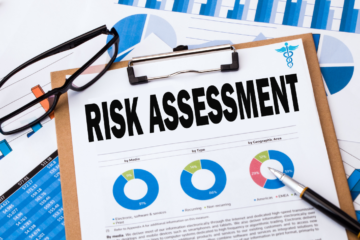Hey there, let’s talk about Data Protection and Privacy in India!
Living in a world where everything is digital, the importance of protecting data and privacy cannot be overstated. With organizations accumulating large amounts of personal information, it has become crucial to ensure the safety of this data. For Indian businesses, compliance with the Data Protection and Privacy Act (DPDPA) 2013 is not just a legal requirement but a key factor in earning and maintaining trust.
Diving into the India DPDPA 2013
The India DPDPA 2013 was put in place to create a strong framework for safeguarding personal data and individual privacy. This law aims to govern how personal data is handled, ensuring it is collected, used, and stored in a manner that respects individuals’ rights. For organizations in India, following this legislation is essential to avoid legal consequences and promote a culture of data protection.
Why Compliance is a Big Deal for Indian Businesses
- Legal Responsibility: Not adhering to the DPDPA 2013 can result in severe penalties, including fines and legal actions. Compliance helps in reducing the risk of facing such consequences.
- Building Reputation: In a time where data breaches can harm a company’s reputation, following data protection laws shows a dedication to safeguarding customer information, enhancing trust and credibility.
- Customer Confidence: Customers are more aware of their data privacy rights now. Compliance with DPDPA 2013 assures them that their personal information is handled carefully, leading to a loyal customer base.
- Operational Efficiency: Implementing data protection measures can improve data management practices, reducing inefficiencies and enhancing overall operational effectiveness.
Steps to Ensure Compliance with India DPDPA 2013
- Data Mapping and Inventory: Conduct a thorough data mapping exercise to understand what personal data is collected, where it is stored, how it is processed, and who has access to it. This forms the foundation of a strong data protection strategy.
- Risk Assessment: Identify potential vulnerabilities in your data handling processes through a risk assessment. This helps in prioritizing areas that need immediate attention and remediation.
- Policy Development: Create comprehensive data protection policies that align with DPDPA 2013 requirements. These policies should cover data collection, consent, processing, retention, and breach response.
- Training and Awareness: Educate employees about the importance of data protection and their role in maintaining compliance. Regular training sessions can embed data protection principles in the organizational culture.
- Data Security Measures: Implement strong data security measures like encryption, access controls, and regular security audits to protect personal data from unauthorized access and breaches.
- Data Subject Rights: Establish procedures to handle data subject requests regarding their personal data, including access, rectification, deletion, and portability as mandated by the law.
- Incident Response Plan: Develop and maintain an incident response plan to manage and mitigate data breaches effectively. This plan should outline steps to take in case of a breach, including notification procedures and remediation efforts.
- Regular Audits and Reviews: Conduct regular audits and reviews of your data protection practices to ensure ongoing compliance. This helps in identifying gaps and making necessary improvements.
Wrapping it Up
Ensuring compliance with the India DPDPA 2013 is not just about following the law; it’s about gaining a strategic advantage for Indian organizations. It builds trust, enhances reputation, and secures personal data. However, navigating data protection laws can be complex.
At Formiti Data International Ltd, we specialize in providing tailored DPDPA compliance services for your organization. Our experts will guide you through the compliance journey, from data mapping to policy development and audits. With our support, you can confidently achieve and maintain compliance with the India DPDPA 2013, securing your organization’s future in a data-driven world.
Contact Formiti Data International Ltd today to discover how we can help you achieve DPDPA compliance and protect your organization’s future.



